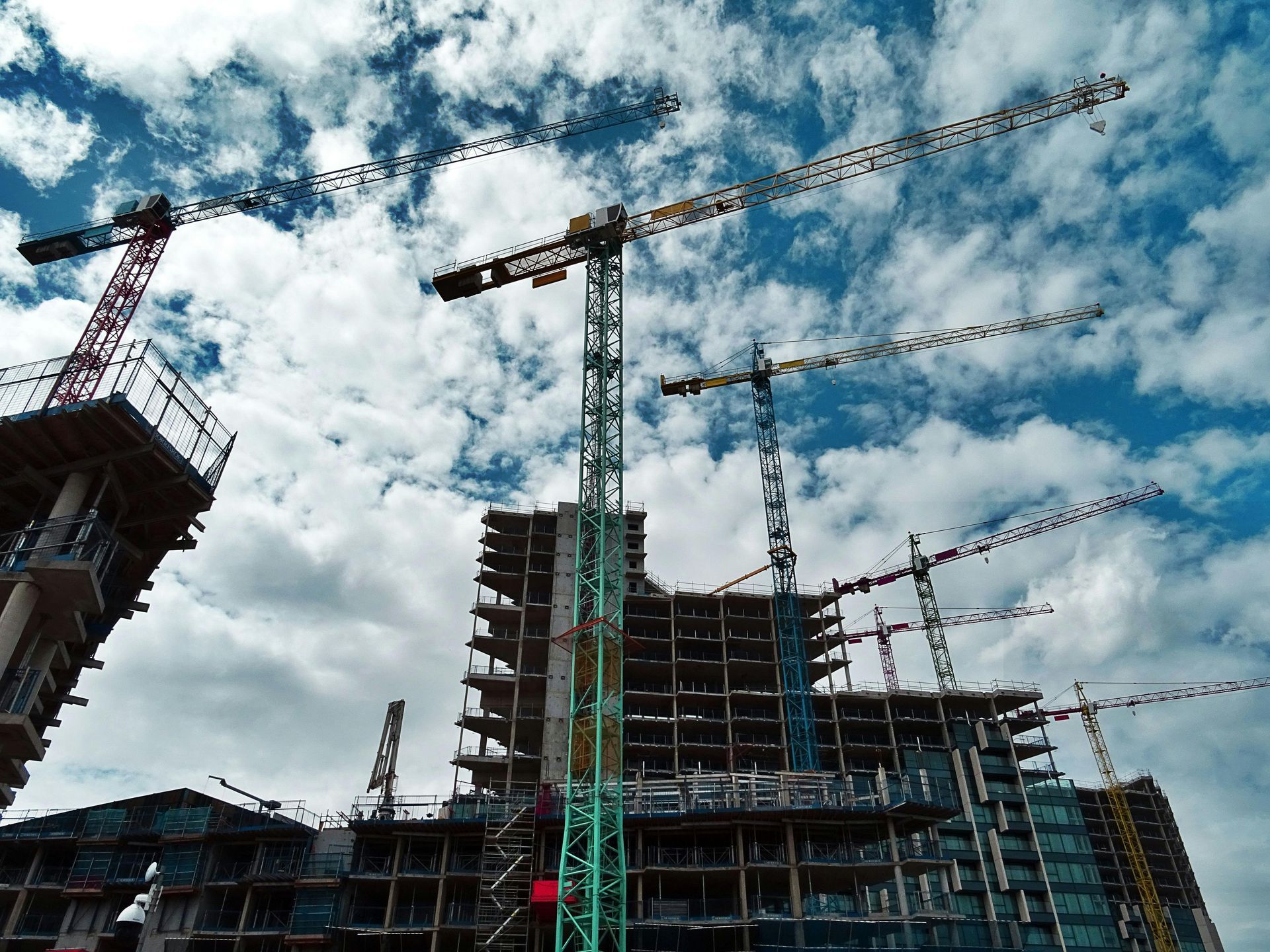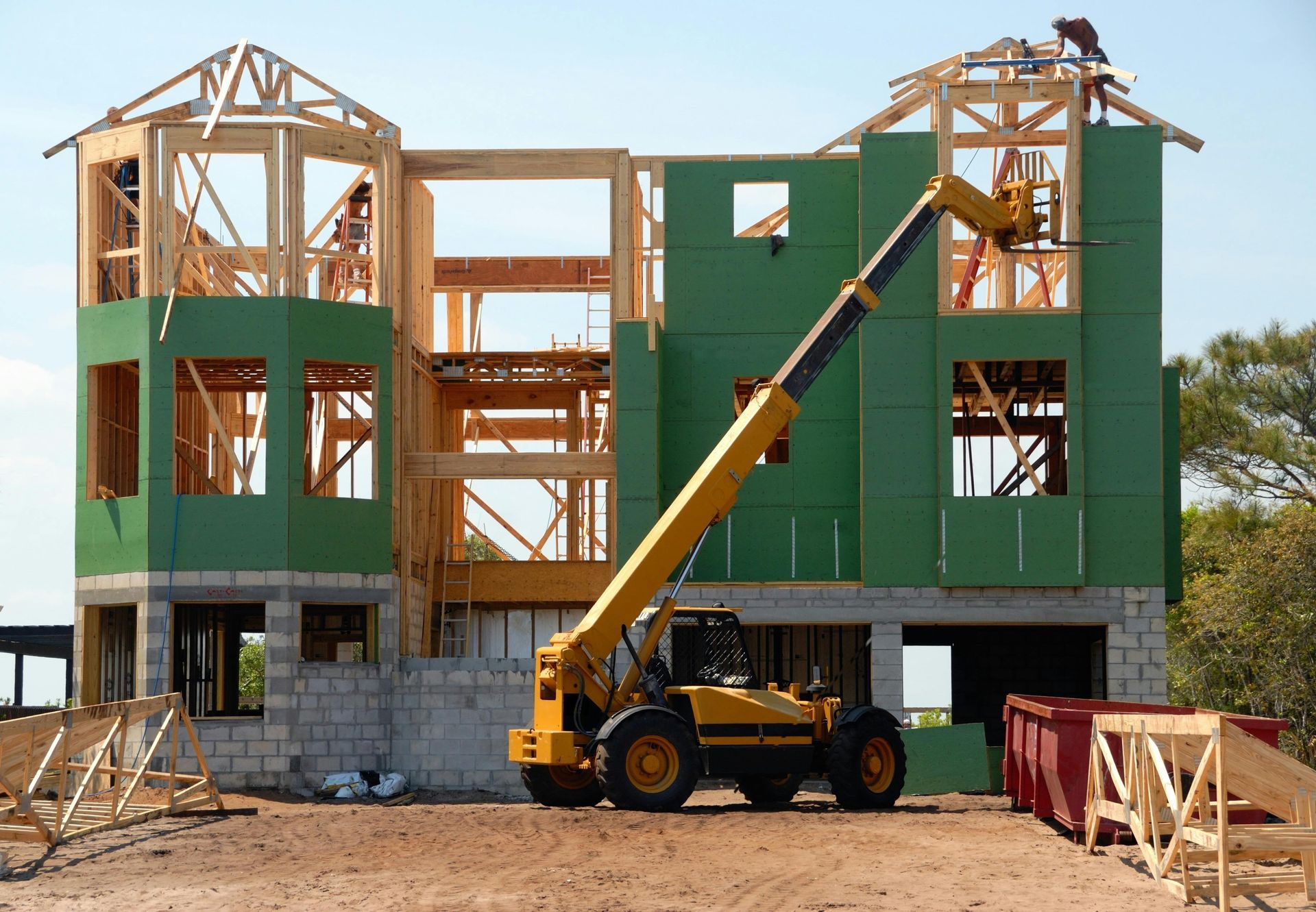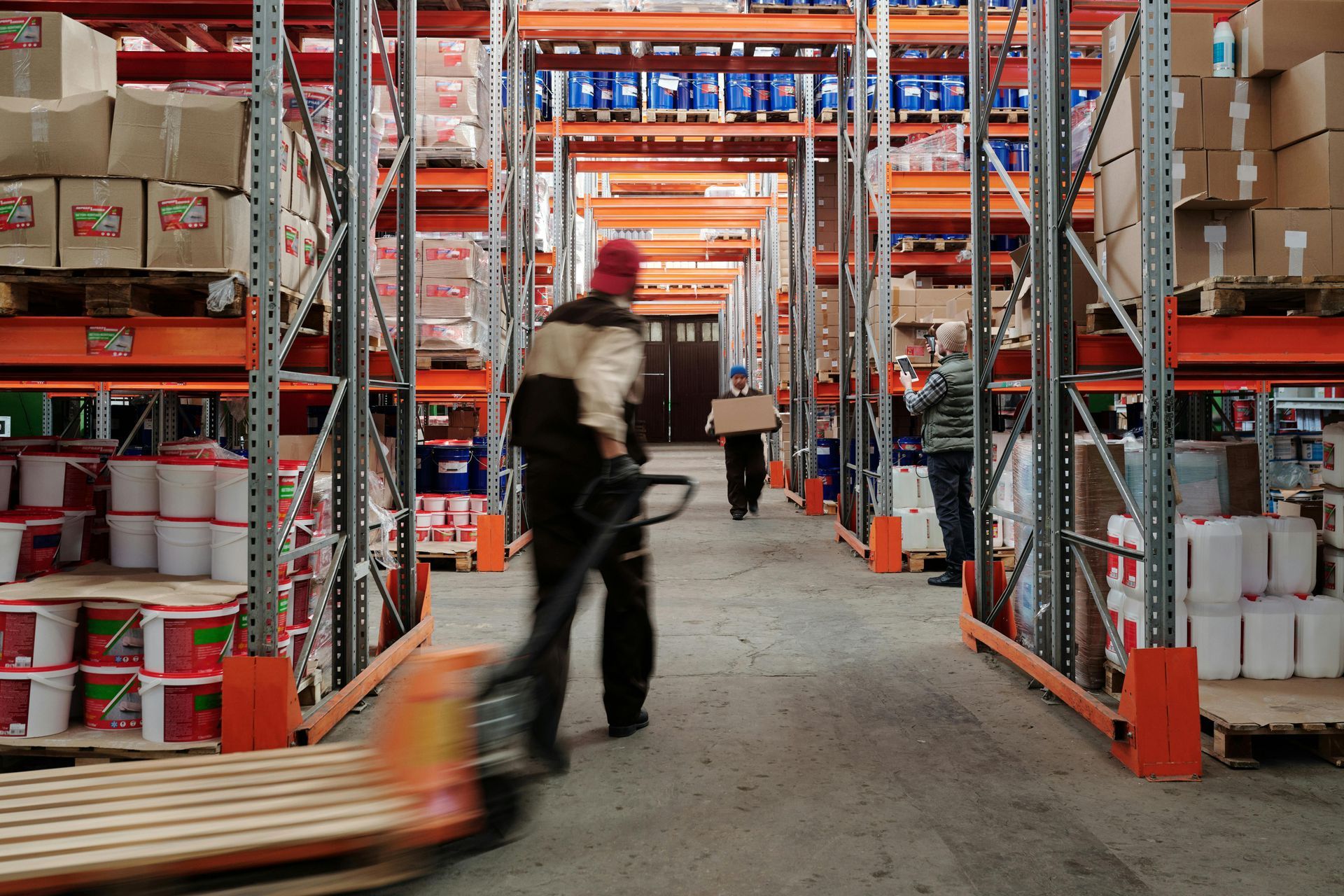Sustainable Logistics: How Green Practices Can Benefit Your Construction Projects
Sustainability has become a key priority across industries, and the construction sector is no exception. As environmental concerns grow, companies are increasingly adopting eco-friendly practices to reduce their carbon footprint, cut waste, and meet stricter environmental regulations. One area where sustainability efforts are making a significant impact is logistics—the process of transporting materials, equipment, and resources to and from construction sites. Sustainable logistics not only benefits the environment but can also offer substantial advantages to construction companies in terms of efficiency, cost savings, and improved client relationships.
In this article, we’ll explore the concept of sustainable logistics, how green practices are being integrated into construction logistics, and the numerous benefits these practices can bring to your construction projects.
1. What is Sustainable Logistics?
Sustainable logistics refers to the implementation of eco-friendly practices in the planning, management, and execution of logistics operations. In the construction industry, this means focusing on reducing emissions, minimizing waste, optimizing delivery routes, and choosing more environmentally friendly transportation options.
The goal of sustainable logistics is to minimize the environmental impact of transporting materials and equipment while maintaining efficiency and productivity. By integrating green practices into logistics, construction companies can reduce their overall carbon footprint, cut down on energy consumption, and support broader sustainability goals.
Key Elements of Sustainable Logistics:
Reduced Carbon Emissions: Lowering the amount of greenhouse gases emitted during transportation through the use of fuel-efficient vehicles and optimized delivery routes.
Energy Efficiency: Utilizing technology to improve the efficiency of logistics operations, reducing energy consumption during transportation and storage.
Minimized Waste: Reducing packaging waste and ensuring materials are delivered and used in ways that minimize waste on-site.
Sustainable Materials: Choosing suppliers and logistics providers that prioritize sustainable materials and eco-friendly practices.
Incorporating sustainable logistics into your construction projects not only contributes to environmental protection but also positions your company as a forward-thinking, responsible business.
2. Reducing Carbon Emissions in Construction Logistics
One of the most significant ways sustainable logistics can benefit construction projects is by reducing carbon emissions. Traditional transportation methods often rely on diesel-powered trucks, which are major contributors to greenhouse gas emissions. By adopting more sustainable transportation options, construction companies can lower their carbon footprint and contribute to the global effort to combat climate change.
Strategies to Reduce Carbon Emissions:
Fuel-Efficient Vehicles: Using trucks and equipment that run on alternative fuels, such as biodiesel, natural gas, or electric power, can significantly reduce the emissions produced during transportation.
Optimized Delivery Routes: Advanced route planning software can minimize the distance traveled and avoid high-traffic areas, reducing fuel consumption and lowering emissions.
Consolidated Shipments: Grouping deliveries to maximize truckloads and minimize the number of trips needed can reduce the overall environmental impact.
These practices not only reduce emissions but also lower fuel costs, making logistics more efficient and cost-effective.
The Impact of Reduced Emissions on Your Project:
Meeting Regulatory Requirements: Many regions are implementing stricter regulations on emissions from transportation and construction. By adopting green logistics practices, you can ensure compliance with these regulations and avoid fines or legal challenges.
Improving Public Perception: Clients and stakeholders are increasingly looking for companies that prioritize sustainability. Reducing carbon emissions can improve your company’s reputation and help attract environmentally conscious clients.
Long-Term Cost Savings: Sustainable transportation methods often lead to fuel savings, which can add up over time and reduce overall project costs.
3. Energy Efficiency in Logistics Operations
Energy efficiency is another crucial component of sustainable logistics. In construction projects, energy is consumed not only during the transportation of materials but also in their storage and handling. By improving the energy efficiency of logistics operations, companies can reduce both their environmental impact and their operating costs.
Energy-Efficient Practices in Construction Logistics:
Using Energy-Efficient Equipment: Opt for vehicles, forklifts, and machinery that are designed to consume less energy or run on alternative energy sources, such as electricity or hybrid power.
Reducing Idling Time: Vehicles and equipment that are left idling for extended periods consume fuel and generate emissions unnecessarily. Implementing policies that reduce idling time can improve energy efficiency.
Smart Warehousing: Utilize energy-efficient lighting, HVAC systems, and automated processes in warehouses and storage facilities to reduce energy consumption and improve operational efficiency.
Benefits of Energy Efficiency for Construction Projects:
Lower Operating Costs: Reducing energy consumption leads to lower fuel and electricity costs, which can translate to significant savings over the course of a project.
Increased Productivity: Energy-efficient equipment often operates more smoothly and reliably, reducing downtime and improving productivity on-site.
Eco-Friendly Brand Image: Adopting energy-efficient practices shows a commitment to sustainability, which can enhance your brand’s reputation and appeal to clients who prioritize green initiatives.
4. Minimizing Waste and Material Use
In the construction industry, waste is a major issue, both in terms of materials and packaging. Sustainable logistics practices focus on minimizing waste throughout the supply chain, from the moment materials are sourced to their final use on the construction site. By reducing waste, construction companies can improve their efficiency, reduce costs, and lessen their environmental impact.
How Sustainable Logistics Minimizes Waste:
Reducing Packaging: Partner with suppliers who use minimal or eco-friendly packaging for materials, and look for ways to recycle or reuse packaging on-site.
Just-in-Time (JIT) Deliveries: JIT deliveries ensure that materials arrive on-site exactly when they are needed, minimizing excess inventory that could lead to waste. This reduces the chances of materials being damaged, lost, or rendered obsolete.
Recycling and Reusing Materials: Encourage the recycling of materials and the reuse of equipment or components to minimize the amount of waste sent to landfills.
Benefits of Waste Reduction for Your Construction Project:
Lower Disposal Costs: Reducing the amount of waste generated on-site can lower disposal costs, saving money for your project.
Improved Site Efficiency: Less waste and clutter on-site means a cleaner, safer, and more efficient workspace, allowing workers to focus on their tasks without unnecessary distractions.
Sustainable Certifications: Implementing waste reduction strategies can help your project qualify for green building certifications, such as LEED (Leadership in Energy and Environmental Design), which can boost your project’s value and appeal to eco-conscious clients.
By minimizing waste, you not only reduce the environmental impact of your construction project but also improve its overall efficiency and cost-effectiveness.
5. The Role of Technology in Sustainable Logistics
Technology is playing a major role in advancing sustainable logistics practices in the construction industry. Innovations in data analytics, automation, and tracking have made it easier to monitor and optimize logistics operations, leading to more efficient use of resources and a reduced environmental impact.
Technologies That Support Sustainable Logistics:
Route Optimization Software: This software helps logistics providers plan the most efficient delivery routes, reducing fuel consumption and minimizing emissions.
Telematics Systems: Telematics can monitor vehicle performance, track fuel usage, and provide insights into how to improve fuel efficiency, reduce idling, and enhance the overall performance of logistics operations.
Inventory Management Systems: Advanced inventory management systems can help construction companies manage their materials more effectively, reducing waste and ensuring that materials are used in the most efficient way possible.
How Technology Enhances Sustainability in Construction:
Improved Decision-Making: Data-driven insights allow construction companies to make better decisions about transportation routes, material use, and energy consumption, ultimately reducing their environmental impact.
Streamlined Operations: Automation and tracking technologies can streamline logistics operations, ensuring that materials are delivered on time, with minimal waste and maximum efficiency.
Reduced Human Error: Technology helps eliminate the risk of human error in logistics operations, leading to more accurate tracking, scheduling, and inventory management.
By leveraging technology, construction companies can optimize their logistics operations, reduce their environmental impact, and make their projects more sustainable.
6. Strengthening Client and Stakeholder Relationships
Adopting sustainable logistics practices can also have significant benefits for your client and stakeholder relationships. Today’s clients, especially in the construction industry, are becoming increasingly conscious of environmental issues. Many are looking for contractors and construction companies that share their commitment to sustainability and are willing to prioritize eco-friendly practices.
How Sustainability Can Strengthen Relationships:
Meeting Client Expectations: Clients are more likely to choose construction companies that offer sustainable solutions. Demonstrating a commitment to green practices in logistics shows that you align with their values and environmental goals.
Gaining a Competitive Edge: Companies that integrate sustainable logistics practices are often seen as more forward-thinking and innovative, which can give you a competitive advantage when bidding for contracts.
Building Long-Term Partnerships: Sustainability is a growing priority for many organizations. By adopting green practices in your logistics operations, you position your company as a long-term partner for clients looking to achieve their own sustainability goals.
7. Reducing Costs Through Sustainable Logistics
While sustainable logistics may require an initial investment in new technology or practices, it can lead to long-term cost savings. From reducing fuel consumption to minimizing waste disposal fees, sustainable logistics can significantly lower operating costs over time.
How Sustainable Logistics Reduces Costs:
Fuel Savings: More fuel-efficient vehicles and optimized delivery routes lower fuel consumption, reducing transportation costs.
Less Material Waste: By minimizing waste and ensuring materials are used efficiently, you can reduce the amount of money spent on excess materials or disposal fees.
Improved Efficiency: Energy-efficient equipment and technologies allow for smoother, more reliable logistics operations, reducing downtime and increasing productivity.
By adopting sustainable logistics practices, construction companies can not only reduce their environmental impact but also achieve significant cost savings over time.
Conclusion
Sustainable logistics is more than just an eco-friendly trend—it’s a smart business strategy that can improve efficiency, reduce costs, and strengthen client relationships. By adopting green practices such as reducing carbon emissions, improving energy efficiency, minimizing waste, and leveraging technology, construction companies can make their projects more sustainable while also enhancing their bottom line.
As sustainability becomes an increasingly important priority for clients and stakeholders, integrating sustainable logistics practices into your construction projects will help you stay ahead of the curve, attract more business, and contribute to a healthier planet.










All Rights Reserved | ASK Logistix